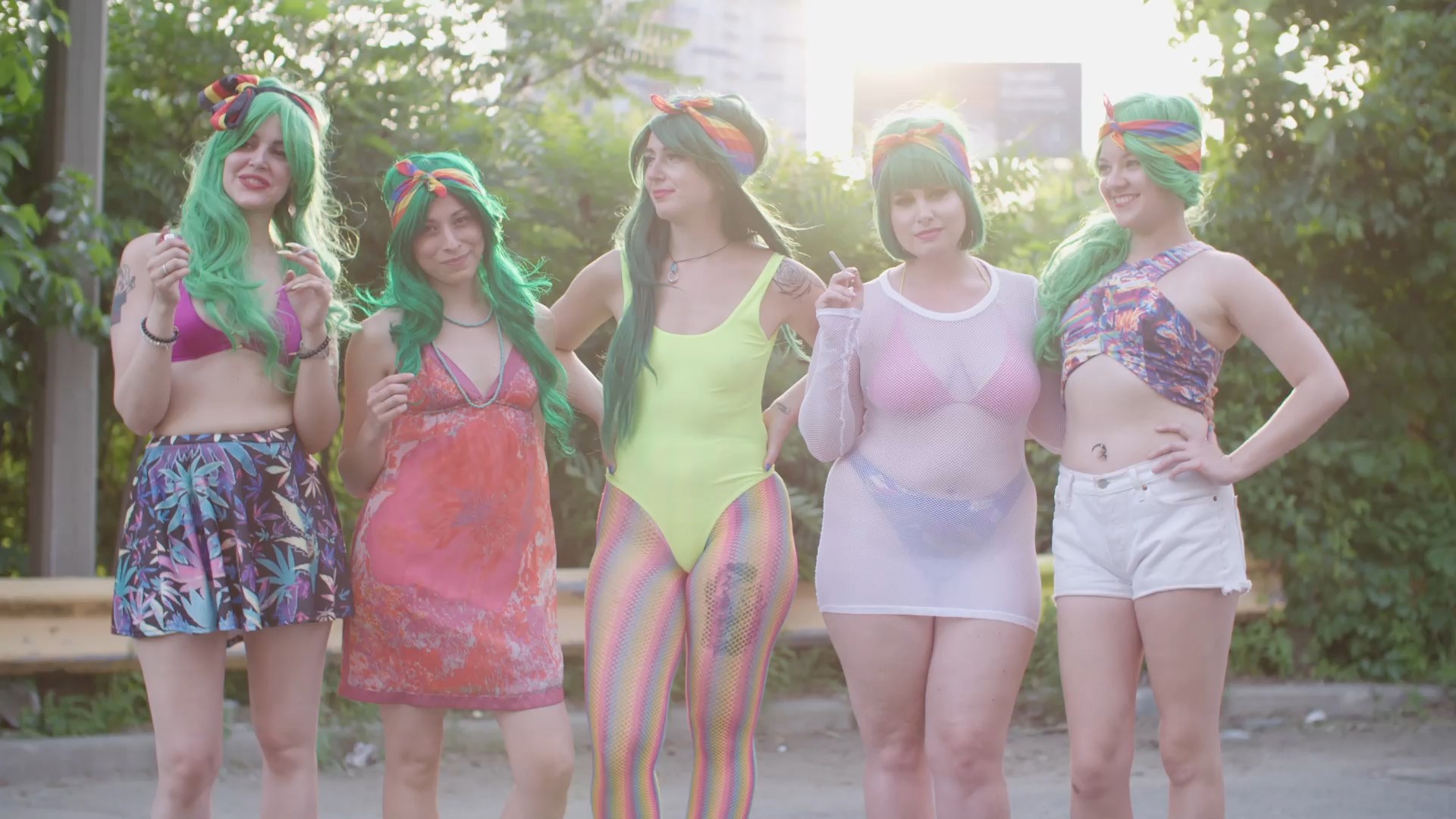Child protection authorities across Canada say they won’t change the way they evaluate parents who smoke weed, regardless of the plant’s legal status.Responding to questions from VICE News, authorities across the country were unanimous: They only evaluate a parent’s capacity to care for their child, regardless of what substances the child’s caregivers may be using. While a parent’s substance use is a factor in that evaluation, authorities said, they do not differentiate between the use of illegal or legal substances.In the U.S., reports have detailed how parents have lost custody of their children, in part due to cannabis use. Other parents have had their kids taken away by the courts solely because the parents were prescribed medication to treat opioid addiction, highlighting the injustices that can arise as a result of child welfare investigations hinging on subjective opinions of whether or not a child’s well-being is at risk.In Canada, the safety of children falls under provincial jurisdiction; each province has its own system in place to triage reports of child neglect or abuse, launch investigations and, if needed, act on what they find. In most provinces, this process is handled by a specific ministry or department of government, but some provinces including Ontario and Manitoba outsource the job to third-party organizations.Jodi Michaels, a family and criminal lawyer in Vancouver, told VICE News in a phone call that British Columbia is “pretty enlightened” in terms of how the province handles child protection and well-being.“The law says that authorities must act only in the best interests of a child. If a parent’s substance use doesn’t affect the kid, [authorities] don’t care,” said Michaels.She noted that generally, cannabis is seen as one of the least-worrisome substances in the eyes of the courts.“Judges are more concerned about alcohol. With marijuana, there’s no violent response [by users] — you never see a parent get high and beat their kids. It’s not something that happens.”Joel Kilbride, Executive Director of Child and Family Programs for the Government of Saskatchewan, told VICE News in an email that “While substance abuse may play a factor in instances where a child is experiencing neglect or abuse, we do not look at adjusting assessment of that child’s safety at home based on the type of substance.“Instead, [we] assess risks to the child’s safety, and then work with the family to determine how we can support them in mitigating that risk so the child can remain safely in the family home.”Adam A. Fritzler, a lawyer in Regina, Sask., told VICE News that he doesn't believe the legalization of cannabis will affect how child protection workers judge a parent's capacity to care for their children, either in the context of investigations carried out by the province or child custody proceedings."I don't think [legalization] will make a damn bit of difference either way," Fritzler said in a phone call. "It will make no difference in divorce proceedings. The question is always the same: does a parent's substance abuse affect the well being of the child, or doesn't it?" “Children’s Aid Societies approach the use of cannabis by parents or caregivers in the same way as it approaches other substances that have the potential for misuse, including alcohol. Front-line staff assess the impact of a parent or caregiver’s substance use or misuse on their parenting capacity, and determine if it is contributing to a risk of harm to the child,” said Newton.In Québec, where the number of files opened by the provincial youth protection department has spiked in recent years, a spokesperson for the government stated that “It is not the legal or illegal status of the substance, but the development and safety of the child, that is at the heart of the child protection intervention […] the change in cannabis status does not significantly alter interventions in this area.Michaels, the lawyer in BC, said the one area where she has seen cannabis use leveraged to demonize a parent is during custody battles, when one parent is attempting to discredit the other.“It’s come up as an issue for sure. Parents use it as a tactic; it’s a go-to for them when they want to make allegations about the other parent, to get [custody rights],” she said.Michaels said that while the system in place to protect children from harm in BC isn’t perfect, overall she feels that it’s single-minded focus on the wellbeing of children is laudable.“I’ve seen cases where kids shouldn’t be removed from the home but are, and cases where they should be removed but aren’t,” she said. She stressed that in her view, the province works hard to keep families together - and if that’s not considered in a child’s best interests, the province tries to facilitate contact between kids in care and their troubled parents.“I’ve seen court orders that literally say [to a parent] ‘You can’t use heroin on Mondays and Thursdays, when you have visits with your kids’,” she said, noting that such arrangements ensure that people struggling with severe addiction still have a chance to interact meaningfully with their children.Cover image by VICE
“Children’s Aid Societies approach the use of cannabis by parents or caregivers in the same way as it approaches other substances that have the potential for misuse, including alcohol. Front-line staff assess the impact of a parent or caregiver’s substance use or misuse on their parenting capacity, and determine if it is contributing to a risk of harm to the child,” said Newton.In Québec, where the number of files opened by the provincial youth protection department has spiked in recent years, a spokesperson for the government stated that “It is not the legal or illegal status of the substance, but the development and safety of the child, that is at the heart of the child protection intervention […] the change in cannabis status does not significantly alter interventions in this area.Michaels, the lawyer in BC, said the one area where she has seen cannabis use leveraged to demonize a parent is during custody battles, when one parent is attempting to discredit the other.“It’s come up as an issue for sure. Parents use it as a tactic; it’s a go-to for them when they want to make allegations about the other parent, to get [custody rights],” she said.Michaels said that while the system in place to protect children from harm in BC isn’t perfect, overall she feels that it’s single-minded focus on the wellbeing of children is laudable.“I’ve seen cases where kids shouldn’t be removed from the home but are, and cases where they should be removed but aren’t,” she said. She stressed that in her view, the province works hard to keep families together - and if that’s not considered in a child’s best interests, the province tries to facilitate contact between kids in care and their troubled parents.“I’ve seen court orders that literally say [to a parent] ‘You can’t use heroin on Mondays and Thursdays, when you have visits with your kids’,” she said, noting that such arrangements ensure that people struggling with severe addiction still have a chance to interact meaningfully with their children.Cover image by VICE
Advertisement
In general, provincial authorities either do not track whether drugs played a factor in the apprehension of a child, or if they do, it’s not broken down by drug type. In some cases the information is not in recorded in a manner that can be easily compiled.“Substance use by parents, in itself, does not constitute child abuse or neglect,” said British Columbia’s Ministry of Children and Family Development in an email.“[But] child protection concerns may arise from the potential negative impact of the parent’s or parents’ substance use on the child’s safety, well-being and vulnerability.”“Substance use by parents, in itself, does not constitute child abuse or neglect.”
Advertisement
Advertisement
Child protection investigations are complex for evaluators and emotionally fraught for families. Each case is unique and authorities must rely heavily on subjective evaluations provided by social workers who interview the child, their parents, and visit the family home to determine if the child is being harmed in any way.VICE News asked Fritzler if in his view, the subjective nature of child welfare evaluations leaves open the possibility of bias against parents who use cannabis, due to long-standing stigmas surrounding weed."Substance abuse is so widespread that I believe social workers have ample experience in this area," he said.Michaels concurred with this view, saying that in BC, “People use all kinds of substances, but the main concern [for authorities] is how it affects the child.”The provinces of Saskatchewan and Manitoba have the highest rates of children in out-of-home care in Canada, counting 22.8 and 35.2 children in care per thousand kids, respectively, in 2018.In Manitoba - where in 2017, the number of children in care declined for the first time in 15 years - 87 percent of children in care are Indigenous. (Last year, Jane Philpott, the federal Minister of Indigenous Services, referred to the number of Indigenous children in out-of-home care in Canada as a “humanitarian crisis”.)“Judges are more concerned about alcohol … you never see a parent get high and beat their kids.”
Advertisement
A spokesperson for Manitoba Families told VICE News that “the use of any legal substance is within the rights of adults.“Child and Family Services only becomes involved if the use of a controlled substance […] is affecting their capacity to care for children,” the spokesperson said, before clarifying that CFS “is required to respond to child protection concerns, which could include the use of both legal and illegal substances.”In a statement, Shannon Kerr of Nova Scotia’s Department of Community Services echoed the positions of other provinces.“Social workers must use their professional judgement, specialized training, and skill set to assess whether a child is at risk as a result of the capacity of the parent being altered, whether by the use of a legal substance, prescribed or not, or an illegal substance,” said Kerr.“The established framework used to assess risk to children will continue to be utilized,” she said.In Ontario, child welfare is under the purview of Children’s Aid Societies, third-party organizations mandated by the province to look into reports of potential child harm. Caroline Newton, Director of Public Engagement and Communications for the Ontario Association of Children’s Aid Societies (OACAS) told VICE News by email that CAS’s “do not bring children into care simply because their parents use cannabis or other substances.”“The established framework used to assess risk to children will continue to be utilized.”
Advertisement

